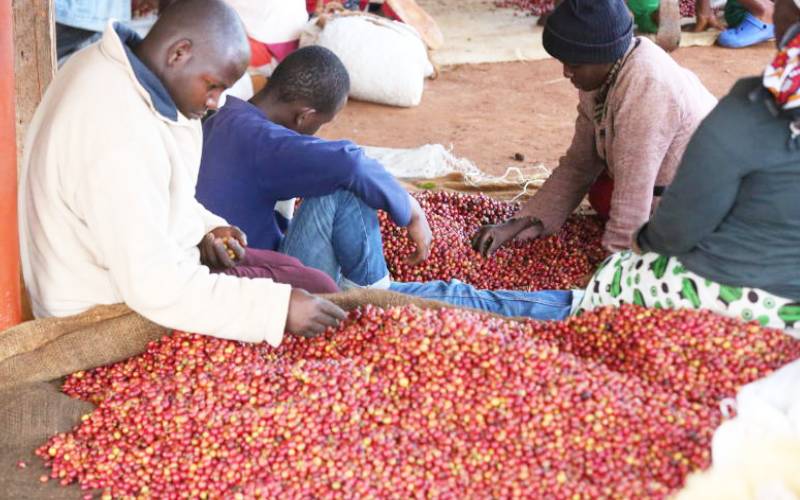×
The Standard e-Paper
Home To Bold Columnists

Farmers sort ourt coffee beans at Giakanja Coffee Factory in Nyeri in November last year. [Kibata Kihu, Standard]
Bidding at the coffee exchange has been hugely altered in the new proposed regulations aimed at benefiting farmers more.